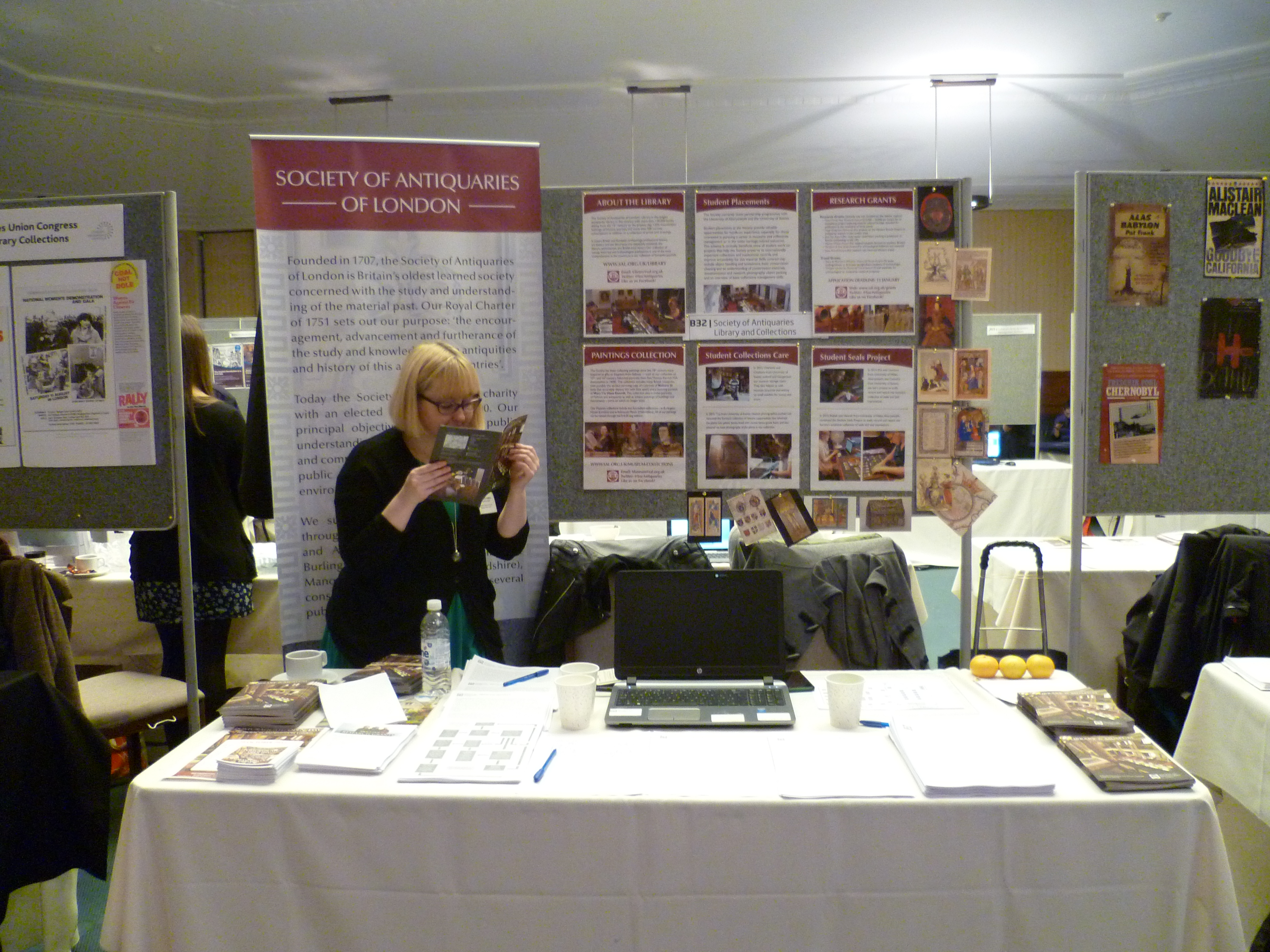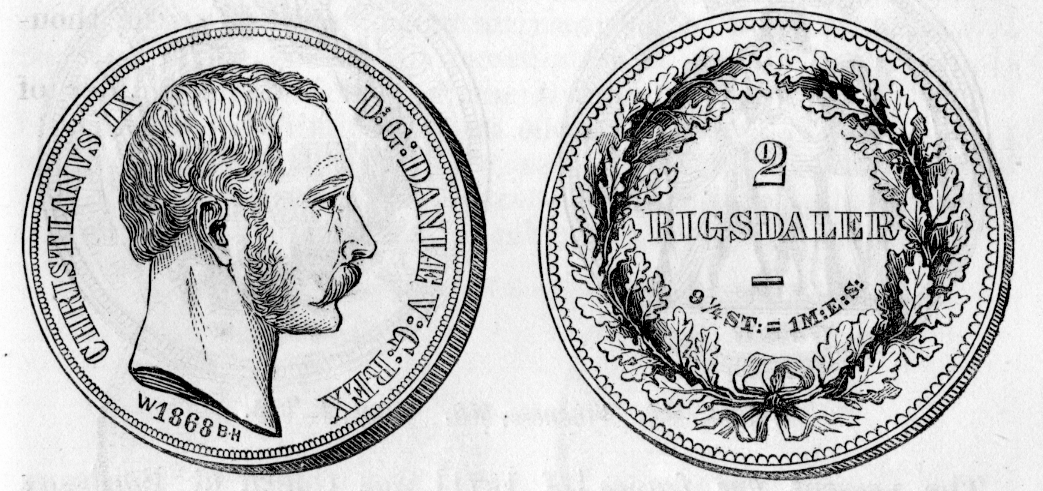|
Mads Kähler Holst
Mads Kähler Holst (born 30 August 1973) is a Danish archaeologist and museum curator. He is the current director of Moesgaard Museum and a professor at Aarhus University. Education and career Holst studied prehistoric archaeology at Aarhus University and obtained his PhD in 2004. His research has focused on Bronze Age and Iron Age wetland sites in Denmark, including excavations of the remains of a battle that occurred at Alken Enge around 1 CE. As director of the Moesgaard Museum, he also heads a project to document submerged Stone Age sites around the coasts of Jutland. Holst was appointed an assistant professor at Aarhus in 2007 and currently holds the position of professor with special responsibilities. He is a member of the Royal Danish Academy of Sciences and Letters and was elected a Fellow of the Society of Antiquaries of London in 2020. Moesgaard Museum Holst has worked at Moesgaard Museum since 2006. He was the head of its Antiquarian Department from 2014 and was ... [...More Info...] [...Related Items...] OR: [Wikipedia] [Google] [Baidu] |
Archaeologist
Archaeology or archeology is the study of human activity through the recovery and analysis of material culture. The archaeological record consists of Artifact (archaeology), artifacts, architecture, biofact (archaeology), biofacts or ecofacts, archaeological site, sites, and cultural landscapes. Archaeology can be considered both a social science and a branch of the humanities. It is usually considered an independent academic discipline, but may also be classified as part of anthropology (in North America – the four-field approach), history or geography. The discipline involves Survey (archaeology), surveying, Archaeological excavation, excavation, and eventually Post excavation, analysis of data collected, to learn more about the past. In broad scope, archaeology relies on cross-disciplinary research. Archaeologists study human prehistory and history, from the development of the first stone tools at Lomekwi in East Africa 3.3 million years ago up until recent decades. A ... [...More Info...] [...Related Items...] OR: [Wikipedia] [Google] [Baidu] |
Society Of Antiquaries Of London
The Society of Antiquaries of London (SAL) is a learned society of historians and archaeologists in the United Kingdom. It was founded in 1707, received its royal charter in 1751 and is a Charitable organization, registered charity. It is based at Burlington House in Piccadilly, a building owned by the Government of the United Kingdom, UK government. The modern membership of around 3,300 fellows mostly consists of archaeologists and historians, who can use the post-nominal letters FSA after their names. Membership Fellows (full members) of the society are elected by existing fellows and are entitled to use the post-nominal letters FSA after their names. The election procedure is selective and fellowship is regarded as recognition of significant achievement in the fields of archaeology, antiquities, history or heritage. A nomination must be made by an existing fellow and endorsed by between five and twelve other fellows. A secret ballot of the membership is then held; to be s ... [...More Info...] [...Related Items...] OR: [Wikipedia] [Google] [Baidu] |
Aarhus University Alumni
Aarhus (, , ; officially spelled Århus from 1948 until 1 January 2011) is the second-largest city in Denmark and the seat of Aarhus municipality, Aarhus Municipality. It is located on the eastern shore of Jutland in the Kattegat sea and approximately northwest of Copenhagen. Dating back to the late 8th century, Aarhus was founded as a harbour settlement at the mouth of the Aarhus River and quickly became a trade hub. The first Christian church was built here around the year 900 and later in the Viking Age the town was fortified with defensive ramparts. The Ancient See of Aarhus, bishopric of Aarhus grew steadily stronger and more prosperous, building several religious institutions in the town during the early Middle Ages. Trade continued to improve, although it was not until 1441 that Aarhus was granted market town privileges, and the population of Aarhus remained relatively stable until the 19th century. The city began to grow significantly as trade prospered in the mid-18 ... [...More Info...] [...Related Items...] OR: [Wikipedia] [Google] [Baidu] |
Danish Prehistorians
Danish may refer to: * Something of, from, or related to the country of Denmark People * A Danish person, also called a "Dane", can be a national or citizen of Denmark (see Demographics of Denmark) * Culture of Denmark * Danish people or Danes, people with a Danish ancestral or ethnic identity * A member of the Danes, a Germanic tribe * Danish (name), a male given name and surname Language * Danish language, a North Germanic language used mostly in Denmark and Northern Germany * Danish tongue or Old Norse, the parent language of all North Germanic languages Food * Danish cuisine * Danish pastry, often simply called a "Danish" See also * Dane (other) * * Gdańsk * List of Danes * Languages of Denmark The Kingdom of Denmark has only one official language, Danish, the national language of the Danish people, but there are several minority languages spoken, namely Faroese, German, and Greenlandic. A large majority (about 86%) of Danes also ... {{disambigu ... [...More Info...] [...Related Items...] OR: [Wikipedia] [Google] [Baidu] |
Living People
Purpose: Because living persons may suffer personal harm from inappropriate information, we should watch their articles carefully. By adding an article to this category, it marks them with a notice about sources whenever someone tries to edit them, to remind them of WP:BLP (biographies of living persons) policy that these articles must maintain a neutral point of view, maintain factual accuracy, and be properly sourced. Recent changes to these articles are listed on Special:RecentChangesLinked/Living people. Organization: This category should not be sub-categorized. Entries are generally sorted by family name In many societies, a surname, family name, or last name is the mostly hereditary portion of one's personal name that indicates one's family. It is typically combined with a given name to form the full name of a person, although several give .... Maintenance: Individuals of advanced age (over 90), for whom there has been no new documentation in the last ten ... [...More Info...] [...Related Items...] OR: [Wikipedia] [Google] [Baidu] |
1973 Births
Events January * January 1 – The United Kingdom, the Republic of Ireland and Denmark 1973 enlargement of the European Communities, enter the European Economic Community, which later becomes the European Union. * January 14 - The 16-0 1972 Miami Dolphins season, Miami Dolphins defeated the 1972 Washington Redskins season, Washington Redskins in Super Bowl VII, with the Dolphins ending the season a perfect 17-0. This marked the first and only time that an NFL team has had a perfect undefeated season, an achievement the team holds to this day. * January 15 – Vietnam War: Citing progress in peace negotiations, U.S. President Richard Nixon announces the suspension of offensive action in North Vietnam. * January 17 – Ferdinand Marcos becomes President for Life of the Philippines. * January 22 ** ''Joe Frazier vs. George Foreman, The Sunshine Showdown'': George Foreman defeats Joe Frazier to win the heavyweight world boxing championship in Kingston, Jamaica. ** A Royal Jorda ... [...More Info...] [...Related Items...] OR: [Wikipedia] [Google] [Baidu] |
COVID-19 Pandemic In Denmark
On 31 December 2019, China announced the discovery of a cluster of pneumonia cases in Wuhan. The first Danish case was reported on 27 February, and prime minister Mette Frederiksen announced lockdown measures on 11 March effective from 13 March. Following a period of consistent increases in hospitalisations, the number of people in hospital with COVID-19 fell from March onwards, with the number of cases in need of intensive care and ventilator units, also peaking in late March. Starting on 15 April, a very slow and gradual reopening was initiated. In an attempt to reduce the economic impact of the COVID-19 pandemic, the Frederiksen Cabinet introduced large economic packages with the support of all parties in the Folketing. The Danish GDP fell by 2.7% in 2020, less than in many other countries. Background On 12 January 2020, the World Health Organization (WHO) confirmed that a novel coronavirus was the cause of a respiratory illness in a cluster of people in Wuhan City, ... [...More Info...] [...Related Items...] OR: [Wikipedia] [Google] [Baidu] |
Danish Krone
The krone (; plural: ''kroner''; sign: kr.; code: DKK) is the official currency of Denmark, Greenland, and the Faroe Islands, introduced on 1 January 1875. Both the ISO code "DKK" and currency sign "kr." are in common use; the former precedes the value, the latter in some contexts follows it. The currency is sometimes referred to as the Danish crown in English, since ''krone'' literally means crown. Krone coins have been minted in Denmark since the 17th century. One krone is subdivided into 100 ''øre'' (; singular and plural), the name ''øre'' is probably derived from the Latin word for gold. Altogether there are ten denominations of the krone, with the smallest being the 50 øre coin (one half of a krone). Formerly there were more øre coins, but those were discontinued due to inflation. The krone is pegged to the euro via the ERM II, the European Union's exchange rate mechanism. Adoption of the euro is favoured by some of the major political parties; however, a 20 ... [...More Info...] [...Related Items...] OR: [Wikipedia] [Google] [Baidu] |
Royal Danish Academy Of Sciences And Letters
The Royal Danish Academy of Sciences and Letters ({{Langx, da, Det Kongelige Danske Videnskabernes Selskab or ''Videnskabernes Selskab'') is a Danish academy of science. The Royal Danish Academy was established on 13 November 1742, and was created with the purpose of strengthening the position of Science in Denmark as well as promoting interdisciplinary understanding. The Royal Danish Academy works as a body of cooperation and a meeting place for prominent scientists from all areas of basic scientific research. Its core activities consist of organizing the biweekly meetings for the academy's members, publishing scientific works, advising, and communicating, organizing and conducting events and lectures of a scientific character (e.g. public lectures and symposiums) as well as participating in international cooperation with other scientific academies and with scientific organizations like for example ISC and EASAC. Since 1745, the Royal Danish Academy has had its own publishing ... [...More Info...] [...Related Items...] OR: [Wikipedia] [Google] [Baidu] |
Museum Curator
A curator (from , meaning 'to take care') is a manager or overseer. When working with cultural organizations, a curator is typically a "collections curator" or an "exhibitions curator", and has multifaceted tasks dependent on the particular institution and its mission. The term "curator" may designate the head of any given division, not limited to museums. Curator roles include "community curators", "literary curators", " digital curators", and " biocurators". Collections curator A "collections curator", a "museum curator", or a "keeper" of a cultural heritage institution (e.g., gallery, museum, library, or archive) is a content specialist charged with an institution's collections and involved with the interpretation of heritage material including historical artifacts. A collections curator's concern necessarily involves tangible objects of some sort—artwork, collectibles, historic items, or scientific collections. In smaller organizations, a curator may have sole respo ... [...More Info...] [...Related Items...] OR: [Wikipedia] [Google] [Baidu] |





